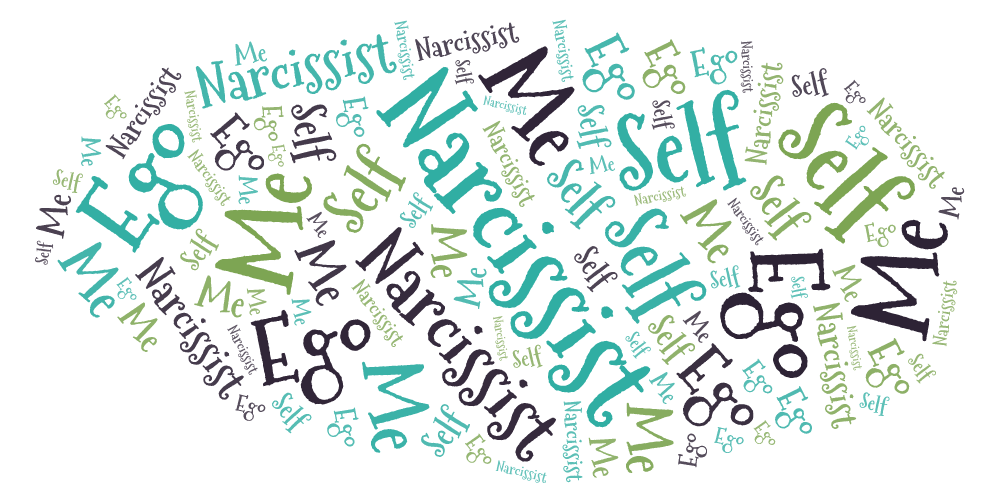As a society we are becoming more informed about domestic abuse (and the many forms that that can take), and increasingly are starting to hear more about narcissism and narcissistic abuse.
This is still a relatively little-known topic in the UK. America is currently leading the way with many studies and research in this area. Sadly, the UK still has a long way to catch up with little recognition of the signs of narcissistic abuse by former partners.
You may have noticed that there has been a recent uptick in articles appearing in the major press on this topic. Some of the subjects have been from brave survivors, turned therapists in this field, having exited toxic and abusive relationships themselves. The really worrying theme in their accounts, is how insidious the abuse is, many not realising that they are in a relationship with and being abused by a narcissist, often until someone points it out to them. They suffer physical and mental ill health themselves; or they read material that “rings true”. It is important to stress, that diagnosis can only be made by a qualified clinician/medical professional.
So what is Narcissism? What are some of the signs to watch out for:
Fundamentally narcissists believe themselves to be entitled and consider themselves to be special, that is more special than everybody else.
- They lack empathy
- They need power and control
- Grandiose sense of self importance
- Being envious of others
- Arrogance
- Need for attention
Narcissists suffer with exceedingly low self-esteem, feeling worthless and inadequate and therefore put up a false persona to the outside world. This persona has to be fed, and this is referred to as narcissistic supply.
In order to obtain narcissistic supply this leads them to exploit other people, as they need to achieve external validation to believe in the own construct image of themselves.
Narcissism is a personality disorder, referred to as NPD. While the condition is not very well recognised in the UK it is estimated that between 1-5% of the UK population is a narcissist. Broken down, this means that 1 in 20 people in the UK is a narcissist. There is no cure for NPD. Only a tiny percentage of sufferers, recognise the condition/diagnosis and go on to engage in and successfully complete therapy.
There are 4 sub types of the condition:
- Exhibitionist/Advert – characterised by arrogance, superior, loud and charismatic.
- Devaluing (toxic/malignant) – put people down to inflate their own ego.
- Closet/Covert – likely to be married to somebody successful. Hard to spot and operates under the radar for decades. Doesn’t openly try to hog the limelight. They will attach themselves to someone that they perceive to be special, so that they can reflect in the glory of the other person to feel special by association. Characterised by playing the victim constantly.
- Communal (altruistic) – also flies under the radar for a while. Often can be found sitting on committees. Wants to be seen as the most generous/caring. Will serve on these committees and “give” to get a sense of being special. However, they will also be territorial and will engage in backstabbing.
Narcissistic Rage
This derives from a threat to a person’s sense of self and is characterised by intense anger. In a relationship, this could manifest in physical or verbal abuse, manipulation, gaslighting or passive aggressive behaviour. Narcissistic rage differs from other forms of anger in that narcissistic rage is disproportionate to the perceived slight. It is completely out of proportion to what provokes it and often takes the other person by surprise.
Outward Signs
- Bouts of rage when not given the attention they feel they deserve
- Screaming and yelling
- Angry or explosive outbursts
- Intense anger
- Sudden fits of anger
- Becoming verbally or physically aggressive
- Inability to control the rage
- Intentionally trying to inflict pain (emotional or physical) on others
Inward Signs
- Passive aggression
- Giving the “silent treatment”
- Withdrawing or being aloof
- Avoiding someone
- Hidden resentment
- Neglecting to do things
- Using sarcasm to cut people down
- Righteous indignation
- Sense of entitlement
- Becoming hostile or bitter
- Cutting people off as a means to protect their self-esteem
- Disassociation of feeling disconnected from reality
Conclusion
This subject is a huge area to cover (far more than we can cover here) and fully deserving of further investigation/reading. If any of this is sounding like it could be describing your partner, these are the steps you could consider taking:
- Attend couples therapy when warranted to work on communication skills. It is vital to choose a therapist who is experienced in this area. General counselling will only fuel the “supply”.
- Set personal boundaries as to what behaviour is acceptable to you in your relationship.
- Put space between you and your partner; give them time to cool off before re-engaging.
- End the relationship if you feel physically, mentally, or emotionally threatened.
Where we can help:
If you decide that you need some further advice or wish to formally bring an end to your relationship/marriage by divorce or separation, do not hesitate to contact us at enquiries@ejcoombs.co.uk or telephone any of our offices and we can advise you.




